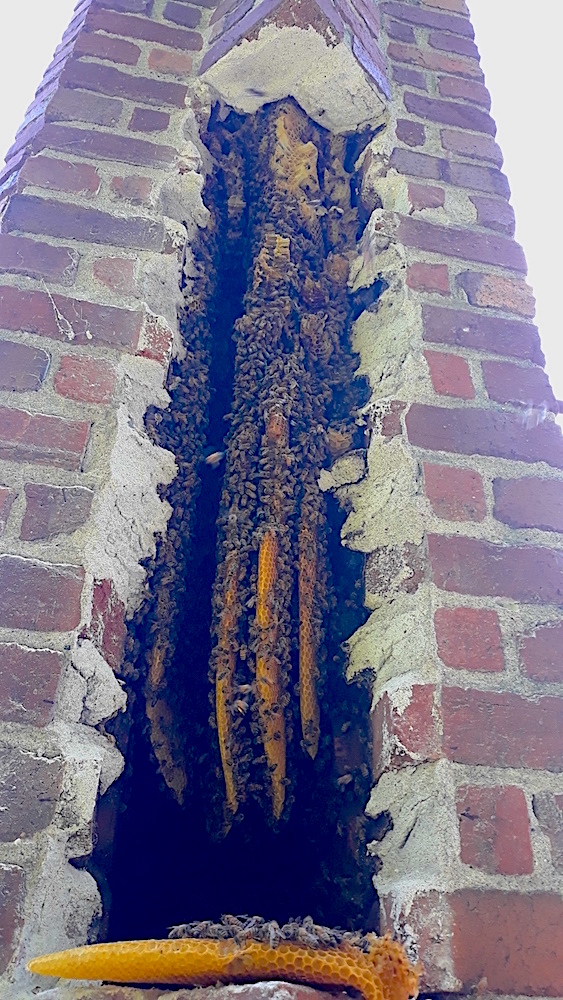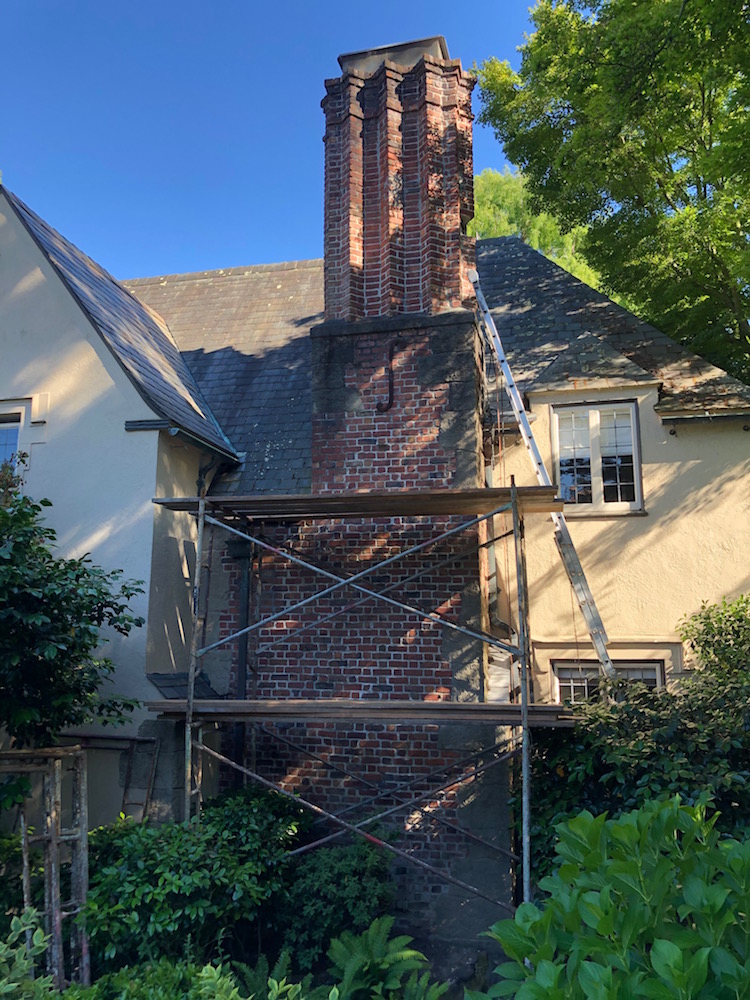When a Piedmont family first noticed the numerous bees in and around their newly purchased home a year or two ago, they figured they would need to find the source and move the hive eventually. What they didn’t know was just how big the colony was: Apiarist Dan Somers of the Bee Free Team opened up the chimney and discovered approximately 85,000 bees along with hundreds of pounds of honeycomb in the hollow space.
Somers says this is definitely one of the largest colonies he’s worked on and told the homeowners that the hive had probably been there for as long as seven years. “Bees will look for any structure that resembles a hollowed out tree,” he told the Exedra. “The bees are a mild annoyance, but it’s the honeycomb that is the real problem. If you don’t clean that out, the bees will keep coming back.”
Somers said homeowners can prevent this from happening in their own homes by making sure to patch any holes and cracks. He noted that smoking them out (a technique beekeepers use to calm bees) and using pesticides don’t work. According to the Beekeeper’s Guild of San Mateo, using pesticides may kill bees but “the left-behind comb attracts insects and rats, and the honey ferments and oozes through walls.” These Piedmont bees will be relocated to an apiary in Half Moon Bay and the honey will be kept to feed them.



TOO COOL ??? MY DAUGHTER LOVES BEEZ ?Wants to Keep Some In the Future ( IF POSSIBLE ) City Dweller ? At Present Time Has Bee Tattoos . NOW She’s Gonna Want a CONE HIVE TATTOO TOO?
I wish I could set up a hive in my suburban yard. I keep spanish needle growing and bees are all around it .But I am 86 and have a bad back so I will be satisfied raising six hens who lay eggs regularly and a mango and avocado tree. Glad to hear that the bees and hives will be moved.
Wow! That’s amazing!
As a bee keeper in Middle Tennessee I can say that not removing cone and not washing it down with ammonia will cause problems in future . I have 21 removals in 9 years and only one did I have a problem with i didnt wash it down with ammonia.
Dont kill the honey bees we need them to pollinate the crops
Fascinating story. Keep ’em coming. I love the pictures of the hives too.